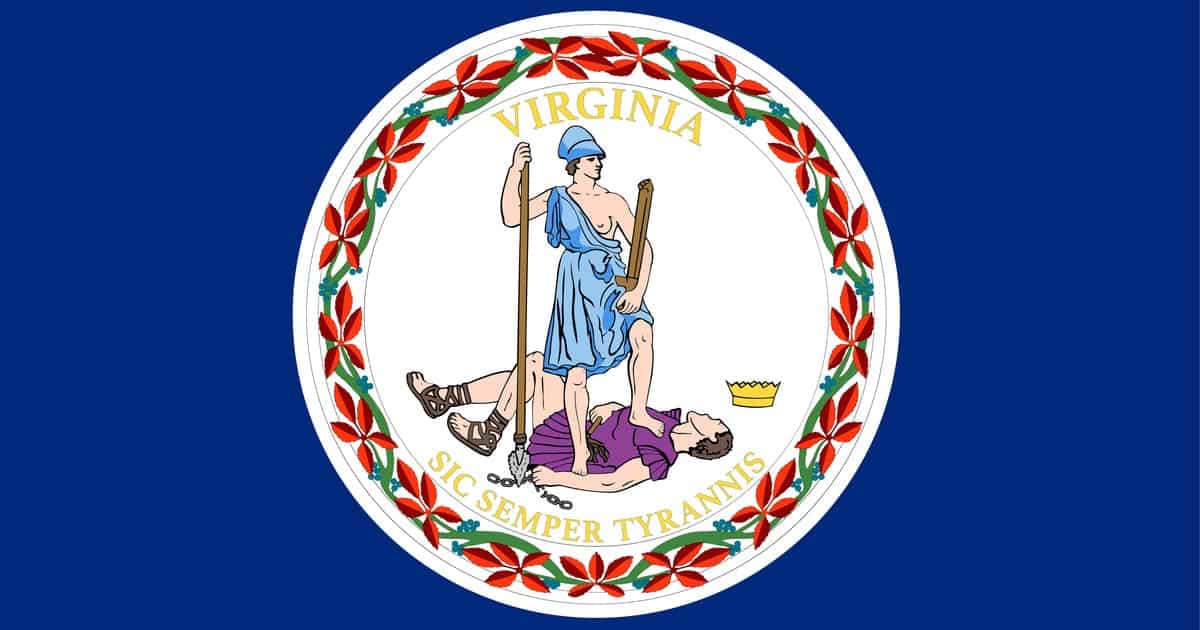TYSONS OFFICE
Virginia Employers Must Comply With These New Laws in 2021

With the dramatic impact and ravages of Covid-19 in 2020, most employers were glad to turn the corner into 2021. However, even as many employers finally begin making plans beyond the immediate pandemic, 2020 has another legacy that must be addressed. Actions by both the Virginia Assembly and the United States Supreme Court in 2020 brought sweeping changes to employment law that every Virginia employer—business, non-profit, or religious ministry—must address to lower their risk of exposure.
Below is a summary of five key Virginia employment law changes in 2020 that may have escaped your immediate attention, but that must now be reckoned with to ensure legal compliance.
G&G’s experienced employment law attorneys are ready to assist the compliance efforts of all types of employers. For religious ministries, G&G’s religious freedom attorneys are available to advise on defenses unique to religious employers and to conduct Religious Identity Audits to enhance their ability to assert such defenses.
I. THE VIRGINIA VALUES ACT INCREASES THE RISKS OF VIRGINIA EMPLOYERS BEING SUED FOR DISCRIMINATION.
The Virginia Values Act (“VVA”):
(1) expands the class of employees protected from discrimination under the Virginia Human Rights Act (VHRA),
(2) makes it easier to sue employers for employment discrimination in Virginia courts,
(3) expands the remedies available to employees for discrimination, and
(4) expands the scope of “public accommodations” and the class of persons protected from discrimination in public accommodations.
Collectively, these changes dramatically increase a Virginia employer’s risk of exposure for employment discrimination claims. Employers should strongly consider a review of their contracts, policies, handbooks, benefit policies, training materials, and other practices in light of these changes.
(1) Expanded Protected Classes
Previously, the VHRA prohibited employment discrimination based on race, color, religion, sex, national origin, sex, age (40 or older) and pregnancy, childbirth, or related medical conditions.
The VVA added the following protected classes to the VHRA to also prohibit discrimination based on:
· Sexual Orientation (this includes “a person’s actual or perceived heterosexuality, bisexuality, or homosexuality.”)
· Gender Identity (this includes “the gender-related identity, appearance, or other gender-related characteristics of an individual, with or without regard to the individual’s designated sex at birth.”)
· Veteran Status
In addition, the VVA clarified what it means to discriminate based on other protected classes.
Discrimination based on “race” includes “because of or on the basis of traits historically associated with race, including hair texture, hair type, and protective hairstyles such as braids, locks, and twists.”
Discrimination “on the basis of” “Pregnancy, Childbirth, or Related Medical Conditions” includes “a condition that may result in the feeding of a child directly from the breast or the expressing of milk from the breast.”
(2) Expanded Ability to Sue in Virginia Courts.
Any employer with 6 or more employees is subject to a discriminatory discharge claim by an employee in Virginia court based on the protected classes listed above.
Any employer with 15 or more employees is also subject to claims involving any type of adverse employment action (other than discharge) based on a protected class.
In addition, the VVA alters the burden of proof to make out a discrimination claim. An employee need only that an employer used a protected class as “a motivating factor for any employment practice, even though other factors also motivate the practice.”
(3) Expanded Remedies for Employees.
The VVA creates an express private right of action – the right of an individual to bring a lawsuit – in state courts and expands the remedies available to prevailing employees to include:
· Unlimited compensatory damages
· Punitive damages (capped at $350,000 in Virginia)
· Attorneys’ fees and court costs
The VVA also gives the Virginia Attorney General the right to intervene and become a party in any such lawsuit. In addition, the VVA expands the investigative authority and enforcement powers of the Virginia Division of Human Rights, the state agency charged with enforcement of the VHRA.
Collectively, these changes incentivize employees (and their lawyers) to bring more claims in Virginia.
(4) Expanded Definition of Places of Public Accommodation.
The VVA also expanded Virginia’s definition of “public accommodation” and existing prohibitions of discrimination in places of public accommodation in ways that may sweep in the activities of more entities, including non-profits and religious ministries. Places deemed “public accommodation” may not discriminate, among other protected classes, based on sexual orientation or gender identity.
II. NEW LIMITS ON EMPLOYERS’ ABILITY TO USE INDEPENDENT CONTRACTORS.
Virginia law now presumes that a worker who performs services for pay qualifies as an “employee” unless the employer proves otherwise under IRS “independent contractor” rules. To further discourage classifying workers as an independent contractor employee, Virginia enacted a new cause of action that allows workers to sue an employer for “knowingly” misclassifying them as an independent contractor instead of as an employee. Workers who prevail may recover attorney fees, back wages, and any benefits (including medical benefits) to which the worker would have been entitled if classified as an employee. Employers may also be liable for back taxes.
G&G attorneys are available to work with employer to review all current contracts or other arrangements where they have classified an individual as an “independent contractor” and ensure that all future classification decisions take account of these increased risks from misclassifying.
III. NEW PROTECTION FOR EMPLOYEE WHISTLEBLOWERS
A new provision in Virginia’s code creates a cause of action for employees alleging that their employer retaliated against them for engaging in “protected activity.” Such protected activity includes:
· reporting in good faith a violation of any federal or state law or regulation to a supervisor or to any governmental body or law-enforcement official;
· being requested by a governmental body or law-enforcement official to participate in an investigation, hearing, or inquiry;
· refusing to engage in a criminal act that would subject the employee to criminal liability;
· refusing an employer’s order to perform an action that violates any federal or state law or regulation; or
· providing information to or testifying before any governmental body or law-enforcement official conducting an investigation, hearing, or inquiry into any alleged violation by the employer of federal or state law or regulation.
An employer may not discipline, penalize, discharge, discriminate, or threaten to discharge, penalize, or otherwise discipline employees because they engage in “protected activity.”
IV. VIRGINIA LIMITS THE USE OF NON-COMPETE AGREEMENTS
New Virginia law prohibits an employer from entering into, enforcing, or threatening to enforce “covenants not to compete” against low-wage employees. “Low-wage employee” includes interns, students, apprentices, and trainees and employees who earn less than the average weekly wage of the Commonwealth – set by the Virginia Worker’s Compensation Commission as $1,137/week (or $59,124 per year) as of July 1, 2020. Employees whose “earnings are derived, in whole or in predominant part, from sales commissions, incentives or bonuses” are expressly excluded.
The statute grants employees a cause of action in state court in which they may seek a declaration that a non-compete is void, an award of damages, including lost wages and liquidated damages, and attorneys’ fees. In addition, employers who violate the statute are subject to a civil fine of up to $10,000 per occurrence.
V. THE U.S. SUPREME COURT EXPANDS THE SCOPE OF SEX DISCRIMINATION UNDER TITLE VII TO INCLUDE DISCRIMINATION BASED ON SEXUAL ORIENTATION AND GENDER IDENTITY/EXPRESSION.
In Bostock v. Clayton County, the U.S. Supreme Court held that discriminating on the basis of sexual orientation or gender identity/expression constitutes prohibited “sex” discrimination under Title VII. The Court reasoned that because sexual orientation and gender identity/expression are “inextricably bound up with sex,” discriminating on these bases “requires an employer to intentionally treat individual employees differently because of their sex.”
With this change of what constitutes “sex” discrimination, employers should revisit policies, employment practices, sexual harassment policies, training materials, and benefit policies among others. G&G attorneys are prepared to work through such changes with employers.
The Supreme Court mentioned, but did not decide or elaborate, that some religious ministries may have defenses available in certain situations involving this expanded definition of “sex” discrimination.
VI. Religious Liberty Defenses
Religious ministries may have certain defenses available to mitigate the impact of some of the new laws mention above. To take full advantage of any of these defenses, ministries should consider undergoing a G&G Religious Identity Audit to ensure that the government officials and the courts give full weight to these defenses.
Our Employment Law and Constitutional Law Attorneys are available to help you navigate these difficult issues, including the unique issues faced by nonprofits, religious organizations, and churches. For assistance, please contact Derek Gaubatz or Scott Ward.




